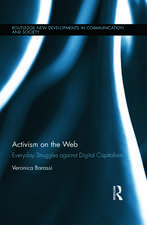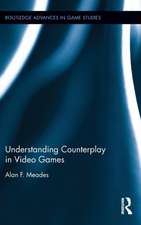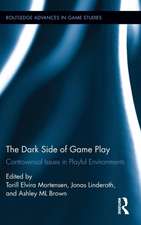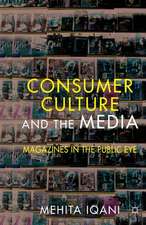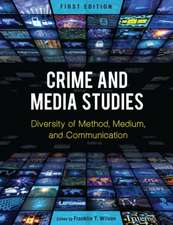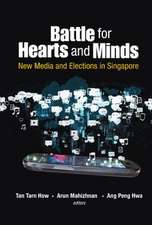Feminist Fandom
Autor Briony Hannellen Limba Engleză Paperback – 26 iun 2025
Preț: 250.59 lei
Nou
Puncte Express: 376
Preț estimativ în valută:
47.95€ • 52.30$ • 40.43£
47.95€ • 52.30$ • 40.43£
Carte nepublicată încă
Doresc să fiu notificat când acest titlu va fi disponibil:
Se trimite...
Preluare comenzi: 021 569.72.76
Specificații
ISBN-13: 9798765101810
Pagini: 224
Dimensiuni: 152 x 229 x 25 mm
Greutate: 0.45 kg
Editura: BLOOMSBURY ACADEMIC
Pagini: 224
Dimensiuni: 152 x 229 x 25 mm
Greutate: 0.45 kg
Editura: BLOOMSBURY ACADEMIC
Caracteristici
Explores how fannish and feminist modes of cultural production and critique are converging in the digital landscape and locates this process within the increasing popularisation of feminism over the past decade
Notă biografică
Briony Hannell teaches in the Department of Sociological Studies at the University of Sheffield, UK.
Cuprins
DedicationList of ContributorsList of IllustrationsAcknowledgementsIntroduction1. Becoming Feminist: Fandom and Feminist Identity Work2. Belonging as a Feminist Fan on Tumblr3. Non-Belonging and Exclusion4. Fandom and/as Feminist Pedagogy5. ConclusionNotesBibliographyIndex
Recenzii
While the pedagogical value of digitally-mediated fandoms is often asserted, here Briony Hannell critically engages with the complexities and contradictions of how a feminist pedagogy functions in online fan spaces. Through its exploration of a range of practices and debates from reflexive un/learning to "SJW fatigue" in these communities, this book complicates exclusively celebratory claims about fandom's links to rising feminist consciousness. While Hannell's arguments are deeply attuned to the socio-technical features of Tumblr, her sophisticated theoretical, methodological and analytical approach is an exemplar of critical and nuanced digital feminist media analysis that makes this book a must-read in the field.
Fandom as a pathway to feminism is understudied, yet after reading Feminist Fandom, the two seem inseparable. This book offers a compelling account of the intersection of digital cultures, feminisms and popular culture. As such, it is a recommended reading for scholars in participatory culture, audience studies, gender studies, feminist studies and fandom studies. This is a book about the power of stories, the importance of Tumblr as a platform of first-person narration and the centrality of storytelling for social movements and their reinvention.
Fandom as a pathway to feminism is understudied, yet after reading Feminist Fandom, the two seem inseparable. This book offers a compelling account of the intersection of digital cultures, feminisms and popular culture. As such, it is a recommended reading for scholars in participatory culture, audience studies, gender studies, feminist studies and fandom studies. This is a book about the power of stories, the importance of Tumblr as a platform of first-person narration and the centrality of storytelling for social movements and their reinvention.


